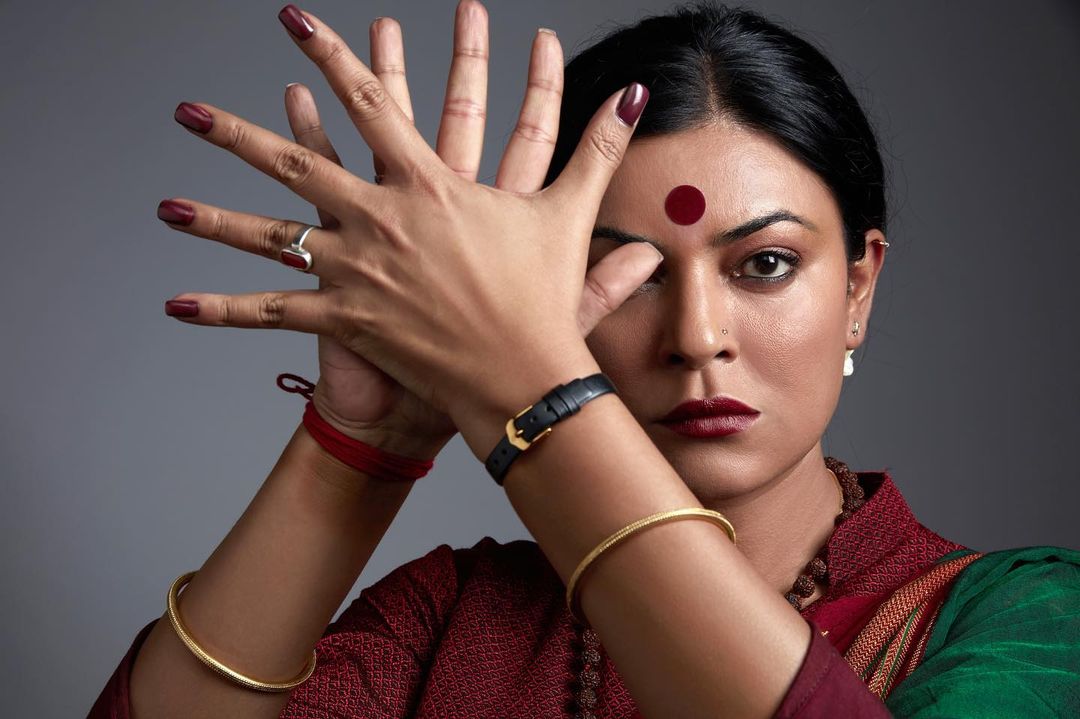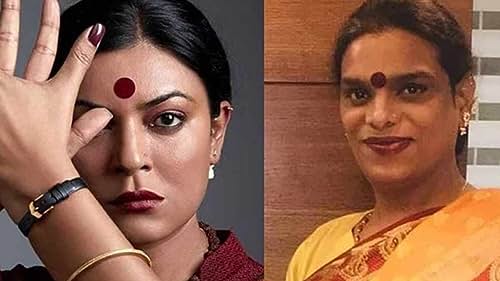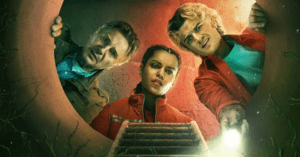
“Equality means more than passing laws. The struggle is really won in the hearts and minds of the community, where it really counts”, said Barbara Gittings. Taali (translation: clap), a stereotypical sign of a transgender person in India Taali is a biopic based on activist Shreegauri Sawant. Ravi Jadhav’s new series, starring Sushmita Sen in the lead role, will take you on the journey of a transgender person and explore more than the Taali you see. The series contains just six episodes but more than six different emotions. The life of the lead role can be divided into three chapters: identity, survival, and equality.
Taali Chapter 1: Identity
The first chapter of Gauri’s life maps his transformation from Ganesh to Gauri. This transformation is not about gender reassignment; this is the realization of who he is from within. Ganesh has a happy family. He has a loving mom and sister and a father who never raised a hand on his son. His mother and sister support him; they even help him dress up because he loves to dance in a saree. But his father doesn’t want his fun to become amusement and mockery for others. By this age, Ganesh realized that he didn’t want to become a strong police officer like his father. When asked at school what he wants to be when he grows up, he says he wants to be a mother.
Taali Chapter 2: Survival

Ganesh’s survival story began after his mother’s demise. This is when Ganesh realizes what deprivation of affection is. His sister got married, leaving him alone with his father. His father tried to help Ganesh, as he thought it was some hormonal illness that required medicine.
During this time, Ganesh met people who asked him not to be different. First, a doctor gave him medicines to help him become more of a man and grow a beard. The doctor said, “You can’t live in this country by being different.” Second, a transwoman showed him how difficult it is for trans people to survive in this society. When his father realized that it was not some hormonal issue, he showed disapproval, and Ganesh left home.
Now adult Ganesh needs to learn how to survive in Mumbai. After surviving a rape and wearing a mustache to earn some money, Ganesh met Navin, a gay social worker, and Nargis, a transwoman. One helped him to be strong, and the other encouraged him to become who he was. Nargis made him realize that unless Ganesh becomes what he truly is—a transwoman—he will never be able to bring about change because they will always consider him an outsider in the community. This is when Ganesh became Gauri.
Chapter 3: Equality
Gauri started rescuing abandoned children. In the process, she learns that trans people don’t have any rights according to Indian law. If you are not a man or a woman, you won’t get any help or privileges from the government. There is a strong line in a scene when Gauri talks at a conference about how scary it is to live in this country. Gauri says, “In a country where even dogs have census but not transgenders, to live in a country like this between people like you, that is scary.”
In 2014, Shreegauri Sawant became the first trans person to file a petition in the Supreme Court of India for the adoption rights of trans people. She is the director of Sakhi Char Chowghi. This organization helps trans people and people with HIV/AIDS. Shreegauri Sawant was a petitioner in the National Legal Services Authority (NALSA) case, in which the Supreme Court identified transgender as the third gender. She was made the goodwill ambassador of the Election Commission in Maharashtra.
How Shreegauri Sawant fought not only for herself and for the trans community but for people and society is commendable. Similarly, how Sushmita Sen acted out her role and made it look believable is nothing but perfection. Director Ravi Jadhav and screenwriter Kshitij Patwardhan did a brilliant job highlighting Gauri’s existential struggle and her zeal to survive and protect. The way the entire cast helped this drama series to see the light of the day, truly deserves a “Taali.” I have seen it twice already; if you haven’t, what are you waiting for?
If you have any questions regarding Taali, feel free to ask them in the comments below. For more content, stay tuned. As usual, like, subscribe, and share our articles, as we are trying to build a community of people High on Cinema!






